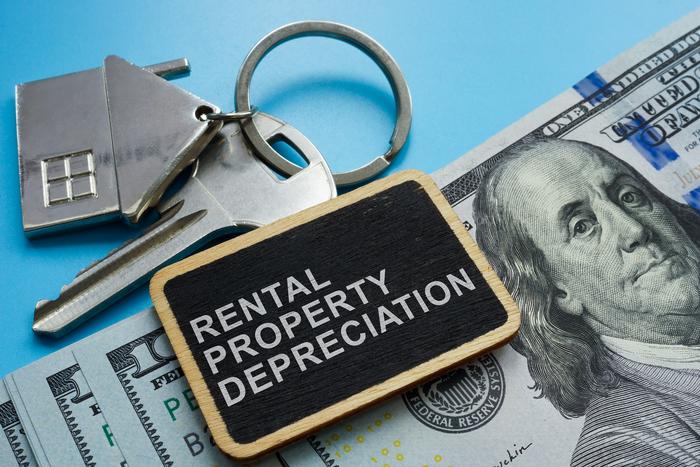Buying a home versus renting a home can be a challenging decision to make. Partially because of the ever-shifting national and regional markets, but also because each person's financial position is unique and there's simply no magic answer that fits all possible financial circumstances. There are, however, some pretty consistent points you'll want to consider. For this topic (which is intended more as a conversation starter than an end-all checklist), we'll keep it relatively light and make the assumption that this would be your first home purchase.
We'll also stay clear of any current market numbers as they'll almost immediately date the value of the article. Instead, we'll remain rooted in your own, personal, household-centered considerations - factors that you may want to weigh before jumping into the unknown. When you're ready, we suggest that you get together with your local real estate specialist. Okay, grab a pen and paper and let's begin going through some of the pros and cons of renting or owning your home for now...
The big picture
First, let's address any distracting emotions... if frustration with your current rental situation is a driving factor in your desire to own (perhaps an annoying upstairs neighbor), then you might want to take a moment to breathe and clear your mind. Sure, this is as valid a reason as any other to propel you forward into homeownership, but even if you started looking for a home right now, the situation isn't going to change anytime soon and distracting emotions may skew your decisions, ultimately affecting your future happiness as well. Instead, keep your long-term goals in mind and know that you're working on your next housing solution... something that will require unbiased weighing of multiple factors. Take your time and allow for the right next step to present itself... as it may end up being moving into a single floor rental.
Gather input, then make your decision
Making the transition from renter to buyer is a big one and while you may be inclined to make it on your own, perhaps as a personal pivot point in your life, you'll likely fair better if you involve your friends and family (those who may know you better than you think). Consider this... you'll ultimately make the decision on your own. That is, at some point, it will be your signature on the line, but for now, you're gathering input and assessing each of the factors that may be driving the underlying impulse to buy (versus continuing to rent). If you're unilaterally deciding to buy now merely out of pride, then the decision will be yours to stand by - whether it ends up being a good one... or a bad one. Instead, consider bringing in your family and friends... get their input and add that to your growing pros/cons list... now you're making an informed decision.
Consider your career and/or the job market
Be sure to consider the relationship between your career and your dwelling. If you’re planning on climbing the corporate ladder fairly quickly, then you may end up accepting transfers to other corporate or partner facilities. On the other hand, if your job situation is more paycheck-to-paycheck, then you might want to remain flexible and able to take on a better opportunity (even if it means moving out of state). Owning a home in either of these scenarios might not afford you the sort of flexibility required to make the most of a last-minute opportunity. Especially if there are two working members of the household.
If you're your plan is to buy a home with the intent of turning around and selling it (should such a career-changing opportunity in another location present itself), there are still important financial considerations that only homeowners have to deal with - considerations you'll now have to factor in. Let's say that you purchase a home but are then offered a huge career advancement and you decide to move. Even if the home is in a hot market and it sells quickly... in order to break even after buying a home, it will take some time for the house to appreciate and for you to pay down some of the mortgage. Only at that point will you be able to sell the house without needing to bring money to closing. This is just one of many such considerations you'll want to be aware of going into the possibility of homeownership.
That all said, owning your home can positively affect your career advancement. While your employer may not mention it, the stabilizing effect that home ownership can have may also provide the sort of long-term investment collateral that makes advancing an employee an equitable decision. Think about it... you're an employer with two equally-qualified advancement candidates (one owns their home and the other rents). Let's go a step further and say that both are actively seeking advancements in their career and both are willing to relocate for an employment opportunity. All things being equal, the homeowner, who would have to list and sell their home over a period of time would be the wiser investment for the company (versus the renter who has the ability to break their lease and leave tomorrow).
While you have enough to think about on your plate, and while you shouldn't make assumptions about other people's decision-making factors, buying a home can significantly affect your career or job advancement opportunities. You should, therefore, bring your career/job goals into the fold while you weigh your options - as they can influence when or where you settle.
Plan your best time to jump
Speaking of when... is now the right time to leap into homeownership? What's the national market like? How about the regional one? How about now... a week later? Even if you're set on buying, now may not be the optimal time. General housing market aside, maybe you want to pull together a bigger down payment or maybe you want to see where your relationship is headed before you make the big decision to lock in on a mutually-binding contract. This is all to say that time is an important consideration. Renting a home, even month-to-month, while you strategize your next move can help you make a better long-term decision. And if you're considering homeownership for the first time, you need to start exercising your long-term strategy skills.
Consider your lifestyle goals
Think about what home ownership means to you. Not everyone that is looking to buy a home is seeking financial gain (at least not entirely). If you're considering buying a home with a domestic partner, you may be surprised to find that each of you has different, but not mutually-exclusive, long-term goals. Discussing what you're looking for (what's driving your decisions to buy a home versus renting for now) may help you make a better, more-rewarding decision together and for the long run. Ask yourself...
- Is homeownership more of a financial investment (something you hope to make a return on)?
- Is homeownership more of a legacy investment (something to pass down to family over time)?
- Is homeownership more about personal freedom (to create your space how you want it)?
- Is homeownership more of a relationship stabilizer (to help anchor your personal relationship)?
- Is homeownership more of a personal achievement (a personal marker of success in your life)?
- Perhaps a little of each of these?
Of course, there are countless reasons why someone would want to buy a home (whether they're currently a renter or not). The reasoning behind the decision might even shift over time. Perhaps you bought a home 5 years ago to slowly accrue financial gain, but ended up growing your family and now, your home has become more of a legacy investment. While that hypothetical scenario is a bit down-the-road for most renters exploring the option to buy, it is something you may want to consider, as making the decision to own will, in the best cases, root your dreams to a tangible and referencable asset, but in the worst cases, plant your feet and lock your options to the market.
Run the numbers
There are tons of calculators that you can find online to help you do the math. While they can quickly help you run some basic numbers, it's important that you put in your own financial figures as they may differ significantly from the preset values you see. These calculators help by letting you make certain assumptions about rent, the rate at which your rent may increase, your income tax rate, the amount you put down and so on. Tools like online calculators may also help you identify windows in the market where buying will become less expensive than renting. Some of these calculators even present a chart, showing you the differences over time, breaking down costs over time. Using these sorts of tools is a good start for planning purposes, but you’ll also need to confirm the results with an expert advisor (no calculator will replace professional advice running real numbers).
Next steps
Pull together all of your personal and household goals you’ve listed, as well as the insight you’ve gained from friends, family and professionals in the field. Try and remain objective as you go through it all. At this point, and after weighing all of your considerations and options, you may want to reach out to your local real estate specialist - they're there to help people like you at points in life like this. Even if you decide that this just isn't the year to make the leap into homeownership, it may still be a good idea to get some professional input on the matter. After all, there may be other factors that they're aware of which you haven't yet considered. Either way, you’ll be in a better position to make an informed decision - one that will serve you well now and into the future.
offrs collects and provides topical insights, statistics, reviews, humor and best practices gathered from real estate professionals and consumer homeowner industry peers. If you're a broker or agent interested in learning more about real estate lead generation websites or real estate predictive analytics solutions, visit www.offrs.com or continue to browse our growing collection of industry articles at www.offrs.net. Learn more about offrs here.





















